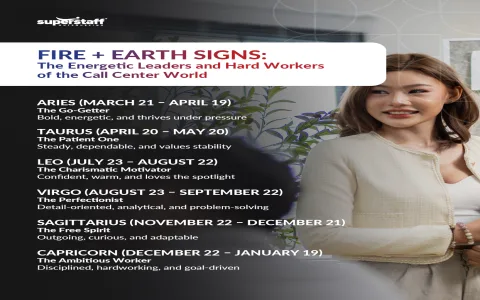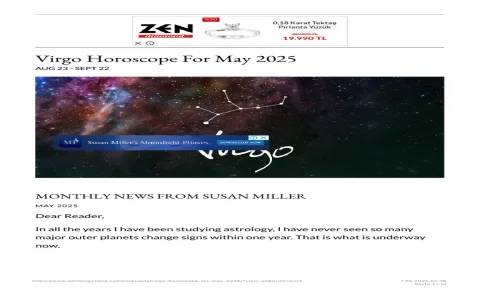Realizing the Riptide: Why I Needed to Jump
I’ve always been one of those people who needs everything lined up, you know? Like a proper Virgo. Everything needs a plan, a strategy, three contingency backups. But sticking to that kind of rigid thinking almost ruined my career last year. By the time May 2025 rolled around, I was absolutely drowning in a job that had gone completely toxic. It wasn’t just the work; it was the entire atmosphere. Every single morning I dragged myself out of bed and felt that dread clamp down hard. I needed a switch, and needed it fast.
I remember seeing that “Virgo Career Horoscope for May 2025” article pop up. Usually, I ignore that mystical stuff, but I was desperate for a sign. The article basically screamed: “Stop waiting for perfection. You have the skills. The market is ready. Jump now or regret the stagnation.” That hit me like a ton of bricks because I realized I wasn’t staying for loyalty; I was staying because I was terrified of the process of switching. So, I ripped up my internal rulebook and decided to treat the job search like an urgent, messy project that needed immediate execution, not endless planning.
Scrapping the Old Strategy: Defining the “Why Not?”
The first thing I did wasn’t updating my resume—everyone tells you to do that, and it’s useless unless you know what you’re selling. Instead, I grabbed a big notebook and started documenting every single pain point. I defined the “non-negotiables.” I wasn’t just listing duties; I was listing the things that made me miserable. I wrote down:

- The exact meetings I hated.
- The specific personality conflicts I couldn’t handle anymore.
- The salary floor I absolutely refused to dip below, factoring in inflation and my stress levels.
This was the key step. I realized my previous job search attempts had failed because I was trying to find a better version of the job I hated. This time, I forced myself to visualize a completely different lane. I spent two weeks just talking to people who had quit my industry altogether, not to network, but just to absorb their mindset. I learned that fear is the only barrier, not capability. I stopped asking, “Can I do this?” and started asking, “Why the hell not?”
The Ugly Interview Process: My Failure Log
Once I had the target roles identified—which were genuinely lateral moves but in totally different environments—I started firing off applications relentlessly. I didn’t bother customizing every single cover letter; that was a waste of time. I had a strong master draft, and I adjusted the opening paragraph. Quantity over initial quality, because I needed practice.
And let me tell you, I bombed the first three major interviews. Hard. They were for jobs I actually wanted, too, which stung. In one screening call, I froze up completely trying to explain a project that was technically complex but lacked real impact. This failure was my real education.
After the third disaster, I realized my previous advice—”be professional, stick to the script”—was garbage. The best advice for switching jobs isn’t about polishing your resume; it’s about learning to tell a compelling story about your future, not your past. I immediately scrapped the stiff, formalized answers I had prepared and focused on the narrative. I practiced talking about the failures, the messy parts, and what those experiences taught me. Instead of saying, “I managed Project X,” I started saying, “Project X failed because of Y, and here’s the three-step framework I immediately built to make sure that never happened again.”
It sounds stupid simple, but this switch transformed my interviews. I started being seen as a problem-solver who had learned from the trenches, not just another applicant listing bullet points. My energy shifted from pleading for a chance to confidently laying out my value proposition.
Nailing the Landing: The Immediate Move
Within four weeks of that initial “jump now” impulse, I had two strong offers, both well above my previous salary floor and, crucially, in environments that addressed my non-negotiables list. I pulled the trigger immediately. I didn’t try to negotiate for weeks; I confirmed the better offer within 24 hours and sent in my resignation the next morning. No two-week notice drama, just a clean break, explaining that my career trajectory had simply moved in a different direction. I used the standard professional language, but internally, I was celebrating that I had finally escaped the rut.
The single best advice I can give anyone looking to switch jobs today? It’s not about finding the perfect time or the perfect job. It’s about recognizing the emotional cost of staying stuck and turning that pain into immediate, decisive action. Stop treating the process like a delicate painting; treat it like demolition. Figure out what needs to go, knock it down, and then worry about rebuilding the foundation. If you wait for the stars to align perfectly, you’ll be waiting forever. I waited until May 2025 to take the advice I should have taken a year earlier, but once I acted, everything unfolded exactly as it should have, messy parts and all.







